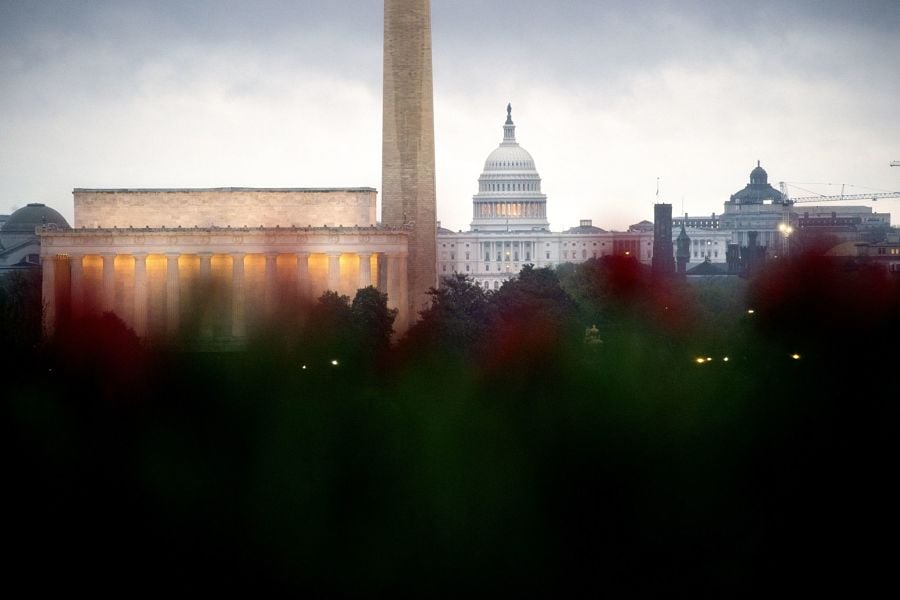

It was difficult to reach investor advocates Tuesday morning to get their reaction to the Department of Labor’s latest attempt to protect retirement savers from conflicted financial advice.
None of them were available until after a White House event at which President Biden formally introduced what the DOL is calling its retirement security rule. They were all planning to be there in person.
It marked the second time a president personally launched his administration’s effort to raise investment advice standards for retirement accounts. President Obama did it at the AARP offices in Washington in 2015. Biden did it at the White House for a successor to the Obama rule.
Under the latest measure, most investment advice to retirement savers — including recommendations on rolling funds from a company plan to an individual retirement account — would be held to a fiduciary standard if the person giving the advice holds himself or herself out as a “trusted advisor,” regardless of whether he or she is an investment advisor, broker or insurance professional.
Whenever an item is put on the president’s calendar, you know it’s an administration priority and has the potential to be a divisive political issue. That was the case with the Obama rule, which was vacated by a federal appeals court in 2018 after industry opponents filed a lawsuit to stop it.
As we set off on another fiduciary journey, battle lines are forming again.
Brokerage and insurance industry trade associations are attacking the proposal as overreaching and unnecessary given the developments on advice oversight since the Obama rule was proposed — namely, Regulation Best Interest, the Securities and Exchange Commission’s broker standard that went into force in June 2020, and a revised annuity suitability rule that dozens of states have adopted.
Investor advocates question whether Reg BI truly curbs broker conflicts. They say the annuity standard lacks teeth. They are confident the DOL proposal will give retirement savers sufficient protection from high-fee investment products that are good for brokers’ revenue but erode nest eggs.
The question is whether consensus can be found on the latest DOL rule or whether it will wind up in court again. The last time around, industry opponents were more intent on stopping the Obama rule than they were on trying to make it more workable, said Phyllis Borzi, a former assistant secretary of Labor and the architect of the Obama rule.
“The same tribalism we see on [Capitol] Hill has, unfortunately, afflicted some people in the employee benefits industry,” Borzi said. “I find that very sad. The best kind of regulation is when the private sector works with regulators to craft regulation that is efficient, effective, workable and narrowly targeted. That benefits everybody — the investor and the people giving the advice — and it’s good government.”
The current DOL proposal is more narrowly tailored than the Obama version in the way it addresses rollovers and independent insurance agents, among other areas, Borzi said.
One of her predecessors — Brad Campbell, assistant Labor secretary in the George W. Bush administration — disagreed. He said the latest proposal suffers the same shortcomings that led to the Obama rule’s demise in court.
“Repacking the primary elements of the 2016 Obama rule will not help [DOL] address the fundamental problem — it exceeds their jurisdiction and authority and is likely to result in less access to advice for the very retirement savers they think they’re helping,” said Campbell, a partner at Faegre Drinker. “[DOL] is still trying to turn sales recommendations into fiduciary advice with an effective scope that is little different from the broad scope the 5th Circuit [Court of Appeals] vacated in 2018.”
Campbell added: “They can’t keep trying through clever regulatory tricks to get around the fact that Congress never gave them jurisdiction over the standard of care for IRA transactions.”
A DOL spokesperson countered that Congress did give DOL authority over parts of the tax code dealing with IRAs through a reorganization lawmakers approved in 1984.
“There are numerous examples of instances where the department has been approached by large financial institutions or industry trade associations to provide relief for transactions involving IRAs — the very kind of relief that some are now questioning — and numerous examples of prohibited transaction class exemptions that provide relief for transactions involving IRAs,” DOL spokesperson Grant Vaught wrote in an email.
If the financial industry decides to sue the DOL over the new rule, it sounds as if the agency is ready to fight back.
Perhaps conflict can be avoided. Borzi pointed to the section of the new rule addressing the difficult issue of oversight of independent insurance agents.
“It shows an evolution of [DOL’s] thinking based on [not just] talking with stakeholders but listening and trying to address the concerns that were raised,” she said.
For retirement savers’ sake, rulemaking must overcome tribalism this time around.

Relationships are key to our business but advisors are often slow to engage in specific activities designed to foster them.

Whichever path you go down, act now while you're still in control.

Pro-bitcoin professionals, however, say the cryptocurrency has ushered in change.

“LPL has evolved significantly over the last decade and still wants to scale up,” says one industry executive.

Survey findings from the Nationwide Retirement Institute offers pearls of planning wisdom from 60- to 65-year-olds, as well as insights into concerns.
Streamline your outreach with Aidentified's AI-driven solutions
This season’s market volatility: Positioning for rate relief, income growth and the AI rebound
